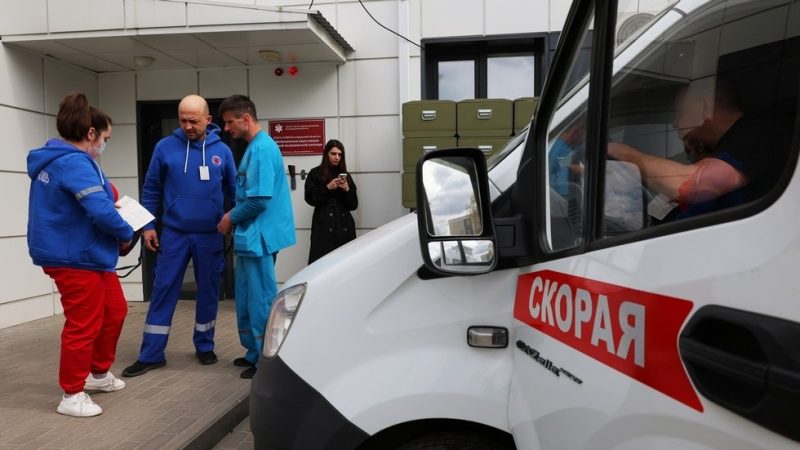
The recent collapse of a bridge in Bryansk, Russia, onto a passenger train has sent shockwaves through the region and ignited a fiery debate. Andrey Klishas, a Russian senator, has responded to the incident by labeling Ukraine a ‘terrorist enclave’ and advocating for the creation of a ‘buffer zone’ along the border. This controversial suggestion raises serious concerns about potential escalation in the ongoing conflict.
The senator’s statement, while strong, reflects a growing sense of vulnerability within Russia. The attack, which is widely suspected to be sabotage, highlights the increasing reach of Ukrainian forces and the potential for further disruptions within Russian territory. The damage to the bridge and the potential casualties underscore the severity of the situation and the urgent need for a response from the Russian government.
Klishas’s call for a ‘buffer zone’ is particularly alarming. Such a measure would likely involve a significant military presence and the displacement of civilians, potentially leading to further humanitarian crises. The creation of this zone could also be interpreted as an act of aggression, potentially escalating tensions and further destabilizing the region. International observers will be watching closely to see how Russia responds to this incident and whether it chooses diplomacy or further military action.
The incident also raises questions about the effectiveness of Russia’s security measures along its border with Ukraine. The apparent ease with which the sabotage was carried out casts doubt on the strength of these defenses and raises concerns about the potential for future attacks. This vulnerability could further embolden Ukrainian forces and encourage further acts of resistance. The long-term implications of this incident remain uncertain, but it undoubtedly represents a significant escalation in the conflict.
The international community must carefully monitor the situation and work towards de-escalation. The potential for further violence and instability in the region is high, and a diplomatic solution is urgently needed to prevent further loss of life and suffering. The focus should be on finding peaceful resolutions and preventing the further militarization of the conflict.










